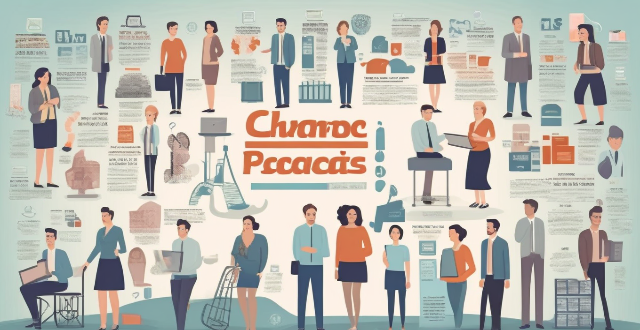Climate change impacts vary by gender and geography, with urban and rural areas presenting distinct challenges for men and women. Urban men benefit from more job opportunities and adaptation resources, while urban women face vulnerabilities during extreme events, health concerns, and economic disruption. Rural men are often dependent on natural resources for livelihoods and may migrate due to climate change, whereas rural women bear agricultural responsibilities, caregiving roles, and water collection tasks, all of which are affected by climate stressors. Key differences include resource access, infrastructure, livelihood dependencies, and gender roles, with women often bearing a disproportionate burden. Addressing climate change requires recognizing these differences and developing targeted strategies for the most vulnerable populations.

Climate Change Impacts: A Gendered Perspective in Urban vs. Rural Areas
Climate change is a global phenomenon that affects everyone, but its impacts are not evenly distributed. Gender and geography play significant roles in determining how individuals experience and respond to climate-related challenges. This discussion will explore the different ways in which climate change impacts men and women in urban versus rural areas.
Urban Areas
Men
- Employment Opportunities: In cities, men often have access to a wider range of job opportunities, including those in industries that might be less affected by climate change.
- Adaptation Resources: Urban men typically have better access to information, technology, and financial resources that can help them adapt to climate changes.
Women
- Vulnerability to Extreme Events: Women in urban environments may face increased risks during extreme weather events due to their roles as primary caregivers and the lack of support systems.
- Health Concerns: Air pollution, exacerbated by climate change, disproportionately affects women's health, especially reproductive health.
- Economic Disruption: While women in urban areas may participate in the workforce, they often occupy vulnerable positions in the informal economy, which can be severely disrupted by climate events.
Rural Areas
Men
- Dependence on Natural Resources: Men in rural areas are often more dependent on natural resources for their livelihoods, such as agriculture or fishing, which are directly impacted by climate change.
- Migration: As climate change makes traditional livelihoods untenable, men may migrate to seek employment, leaving behind family and community structures.
Women
- Agricultural Responsibilities: Women in rural areas often bear the responsibility for agricultural tasks, making them particularly vulnerable to changes in weather patterns and crop yields.
- Caregiving Roles: The dual role of caregiving and agricultural workload increases with climate stressors like droughts or floods, putting additional strain on rural women.
- Water Collection: Women are often tasked with water collection in rural communities, and climate change can exacerbate water scarcity, increasing the time and distance required to access safe water.
Key Differences
- Resource Access: Urban dwellers generally have better access to resources that can aid in climate adaptation and mitigation efforts compared to their rural counterparts.
- Infrastructure: Urban areas typically have more developed infrastructure, which can provide protection against some climate impacts, while rural areas often lack such protections.
- Livelihood Dependencies: The nature of livelihoods varies significantly between urban and rural settings, with rural populations often more directly reliant on natural resources that are vulnerable to climate disruptions.
- Gender Roles: Gender roles and expectations can amplify the differential impacts of climate change, with women often bearing the brunt of climate-related stresses due to their reproductive and caregiving responsibilities.
In conclusion, the gendered impacts of climate change are complex and context-dependent. Both men and women face unique challenges in urban and rural settings, but women often bear a disproportionate burden due to their societal roles and limited access to resources and decision-making power. Addressing climate change requires acknowledging these differences and developing targeted strategies to support the most vulnerable populations.